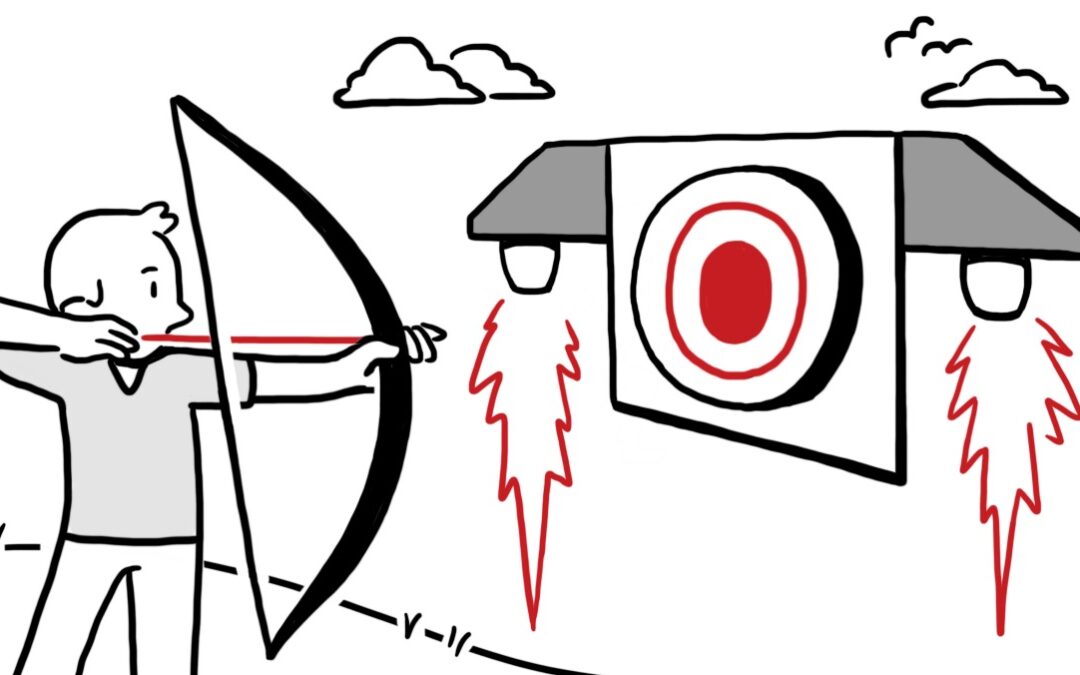Creativity is a necessity in a thriving business, but how often do we consider the role of creative thinking in the formation of a business? Creativity is just as crucial for entrepreneurs as it is for those looking to maintain an advantage over the competition in well-established organizations. Let’s see just how creativity can benefit the successful entrepreneur.
Innovation, Risk Taking, and Thinking the Unthinkable
Anastasia Belyh gives us a good place to start by helping us see where creativity naturally fits into this role. Innovation, the first characteristic of the role that Belyh lists, entails creative ideation. As she puts it, “There is a continuous and conscious effort required to look for niches and undertake the risks in entering them,” and there’s a constant need to improve on existing business workflows.
Risk taking is another area where creativity is necessary—in fact, Belyh argues that “The whole essence of entrepreneurship revolves around the courage and ability to take new risks.” Those risks involve more than innovative business workflows. Entrepreneurs strive to develop new and inventive products, and meet customer needs while pleasantly surprising them. They work to earn and maintain a competitive edge. They work with investors to meet financial needs while the business becomes profitable.
Thinking creatively allows an entrepreneur to come up with the ideas worth bringing to bear on their business. Belyh calls this “thinking the unthinkable” and describes the ability of entrepreneurs to “think beyond the traditional solutions, come up with something new, interesting, versatile, and yet have success potential.”
Adaptation and Success as a Continuum
Of course, there’s more to creativity than ideation, as Nicolas Susco contends—it’s not “just about coming up with ideas. It’s about being able to adapt to new circumstances, navigate uncertainty, and find solutions as problems arise.”
Success depends on the ability to pivot, even when this means pivoting away from a good thing. “Sometimes entrepreneurs get caught up in the success of their initial idea. They feel it’s so amazing that they never have to be creative again.” The entrepreneurs who succeed over time are the ones who don’t become complacent, but “use their creativity over and over” and reevaluate even what’s worked in the past.
A creative entrepreneur is also one who doesn’t see success as an endpoint—or, rather, one sees success as a moving target. “Just because your business is doing fine, that doesn’t mean it can’t do better,” Susco points out, and reinforces the importance of creativity in surviving complacency: “Sometimes sitting back allows a competitor to innovate and put you out of business with a more creative solution.”
This is something that bears a moment of serious thought: whether or not you are committed to creativity, you have competitors that are. If you don’t fight fire with fire, you will be burned out by other firms working to develop next-level solutions and offerings.
Increasing Your Creativity: Going Analog
Now, let’s shift gears. Creativity matters to the entrepreneur, their products, their ability to contend with change, their chances to compete, and their ability to stave off complacency—so how can an entrepreneur become (and remain) creative?
John Boitnott of entrepreneur.com suggests first “free[ing] your mind to take those flights of fancy that result in heightened creativity” in his tips to help entrepreneurs unlock the creativity inside them. Boitnott’s suggestion for freeing the mind is to use your hands instead of your phone. Find an ‘analog’ activity (“anything that requires repetitive movements and little intellectual analysis”) and let your mind drift through a far more creative thought process.
Expanding Your Horizons
It’s also important to take stock of, and value, the creativity of others as you work to cultivate it in yourself. Boitnott suggests pursuing creative expression that you might not typically look into, like a movie or museum exhibit that you might otherwise skip.
Why should you go see art that would normally not match your interests? It can certainly give you ideas, but more than that, it can remind you of the scope of creativity. You might love movies, say, but this experiment might show you an art film or unconventional work that you hardly knew was possible. And beyond others’ creative output, try to “look for other people’s creative decision-making skills.”
This second part of appreciating others might be even more useful to the entrepreneur interested in increasing their creativity. Watching successful, innovative problem-solving, conflict resolution, or other decision-making situations involving others can create inspirational lightbulb moments. When you find yourself thinking “It never occurred to me to try this approach—look how well it works,” take a note.
Meditate
The last of Boitnott’s suggestions for open-minded ideation is also a great final piece of advice for the creativity-interested entrepreneur: meditate often. Meditation serves many purposes, but in this context, its primary purpose is to quiet the mind and “power down.”
As in the analog activity advice, this freeing of the mind allows creative thinking to come much more easily. Open-monitoring meditation, “where you simply sit quietly and observe without judging whatever is going on around and within you,” is Boitnott’s suggestion for the greatest benefit.
Creativity is Indispensable
Creative thinking is crucial to an entrepreneur’s ability to gain traction with their business and maintain forward momentum. It promotes divergent, innovative thought in business processes, product design, and more, and encourages continuous reevaluation of circumstances.
Creativity is often the key differentiator between startups that do well for a time before becoming complacent and folding, and startups who enjoy lasting success. How will you become a more creative business leader—even if your ‘entrepreneur days’ are behind you?

